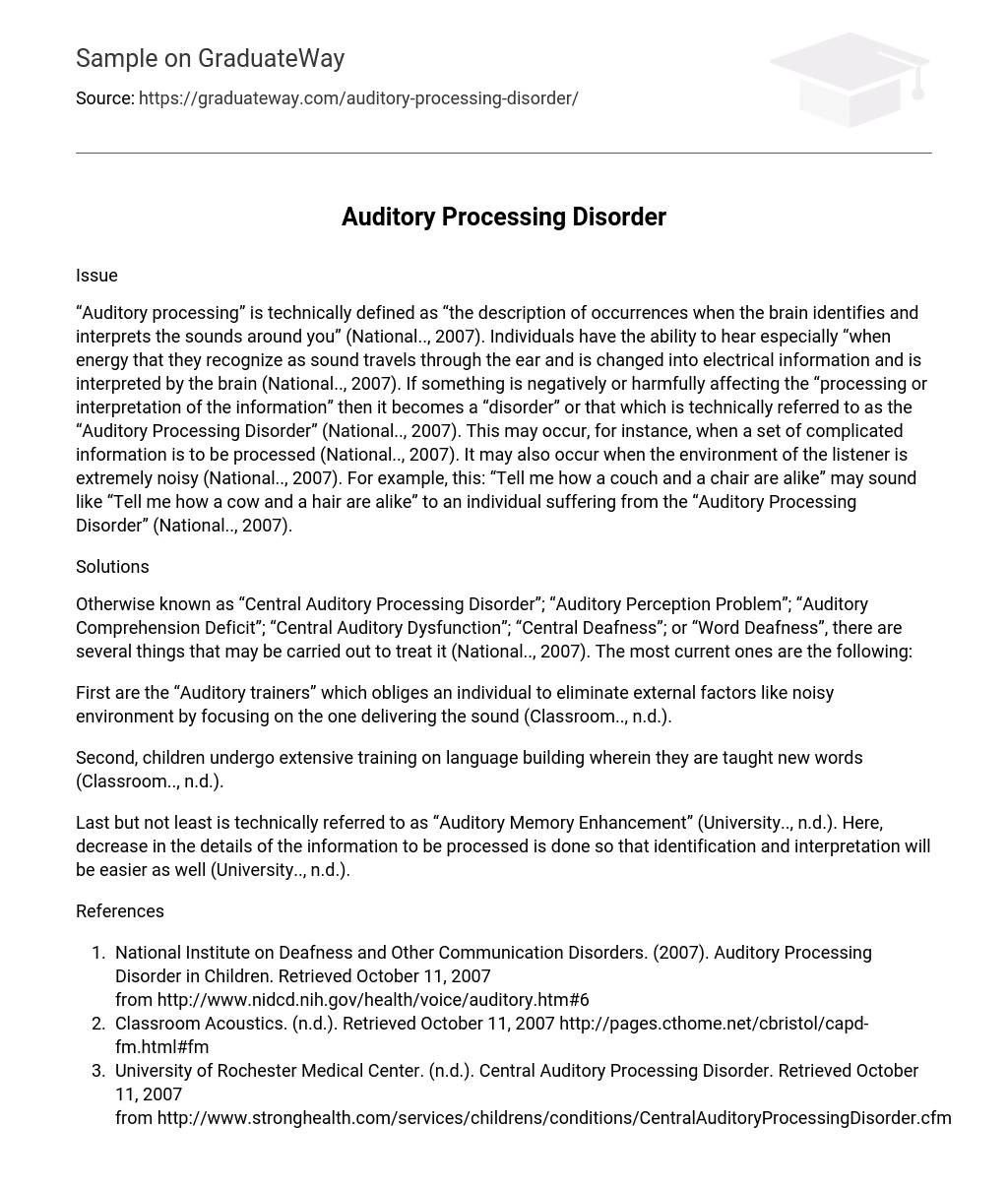Issue
“Auditory processing” is technically defined as “the description of occurrences when the brain identifies and interprets the sounds around you” (National.., 2007). Individuals have the ability to hear especially “when energy that they recognize as sound travels through the ear and is changed into electrical information and is interpreted by the brain (National.., 2007).
If something is negatively or harmfully affecting the “processing or interpretation of the information” then it becomes a “disorder” or that which is technically referred to as the “Auditory Processing Disorder” (National.., 2007). This may occur, for instance, when a set of complicated information is to be processed (National.., 2007). It may also occur when the environment of the listener is extremely noisy (National.., 2007). For example, this: “Tell me how a couch and a chair are alike” may sound like “Tell me how a cow and a hair are alike” to an individual suffering from the “Auditory Processing Disorder” (National.., 2007).
Otherwise known as
- “Central Auditory Processing Disorder”;
- “Auditory Perception Problem”;
- “Auditory Comprehension Deficit”;
- “Central Auditory Dysfunction”;
- “Central Deafness”;
- “Word Deafness”, there are several things that may be carried out to treat it (National.., 2007).
Solutions
The most current ones are the following:
- First are the “Auditory trainers” which obliges an individual to eliminate external factors like noisy environment by focusing on the one delivering the sound (Classroom.., n.d.).
- Second, children undergo extensive training on language building wherein they are taught new words (Classroom.., n.d.).
Last but not least is technically referred to as “Auditory Memory Enhancement” (University.., n.d.). Here, decrease in the details of the information to be processed is done so that identification and interpretation will be easier as well (University.., n.d.).
References
- National Institute on Deafness and Other Communication Disorders. (2007). Auditory Processing Disorder in Children. Retrieved October 11, 2007 from http://www.nidcd.nih.gov/health/voice/auditory.htm#6
- Classroom Acoustics. (n.d.). Retrieved October 11, 2007 http://pages.cthome.net/cbristol/capd-fm.html#fm
- University of Rochester Medical Center. (n.d.). Central Auditory Processing Disorder. Retrieved October 11, 2007 from http://www.stronghealth.com/services/childrens/conditions/CentralAuditoryProcessingDisorder.cfm





